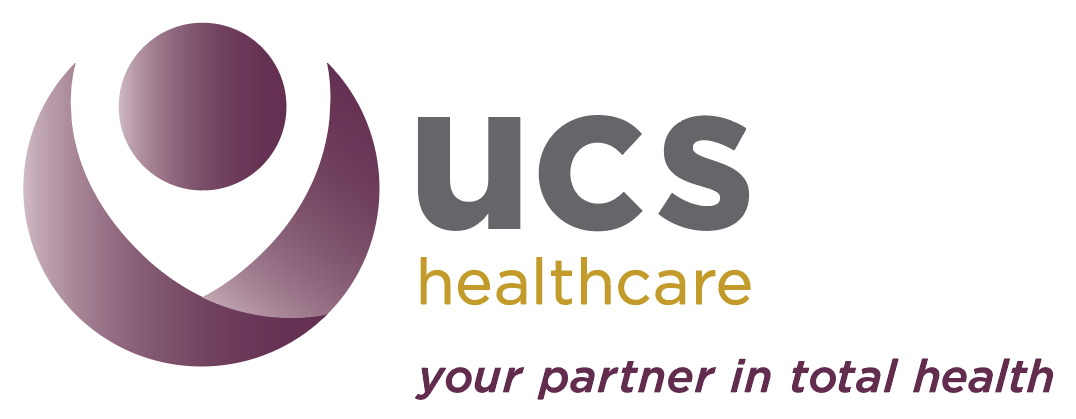UCS Receives $200,000 Grant from Polk County Behavioral Health and Disability Services
July 10, 2024

UCS Healthcare is leveraging a substantial financial grant from the Polk County Opioid Settlement to expand services provided by the UCS Mobile Clinic (Mobile Unit.) With the recent acquisition of $200,000, UCS Healthcare plans to boost comprehensive services aimed at combating opioid use disorder and supporting recovery. This initiative underscores UCS Healthcare's unwavering commitment to patient well-being and its prominence as a reliable provider in the healthcare landscape.
The importance of opioid settlement funds cannot be overstated. These funds, derived from national litigation against pharmaceutical companies, are designated to address the widespread harm caused by opioid use. For UCS Healthcare, the $200,000 received from the Polk County Opioid Settlement represents a critical opportunity to expand and enhance services for those battling opioid addiction. The funds are earmarked for high-impact prevention, treatment, recovery, and harm reduction.
UCS Healthcare is committed to using these resources transparently and sustainably to provide direct support to individuals with lived experience of substance use. This two-year grant will enable UCS to broaden access to integrated healthcare services, strengthen peer support programs, and enhance overall patient care, particularly for underserved and marginalized communities.
UCS Healthcare is implementing several strategic initiatives to maximize the impact of the opioid settlement funds. The organization is focusing on expanding its Mobile Clinic services, which offer substance use disorder evaluations, medication-assisted treatment (MAT), mental health assessments, and harm reduction supplies directly to vulnerable populations. This approach ensures that care reaches those who face significant barriers to accessing traditional healthcare settings.
Additionally, UCS Healthcare is fostering community partnerships to create a more integrated support network. By collaborating with local organizations, UCS aims to provide a seamless continuum of care for individuals in recovery.
These organizations include:
● The Beacon.
Two locations, one in Sherman Hill and the other in The Village on NE 14th St, provide community, healing, and growth for women who have faced trauma, abuse, substance use, incarceration, and homelessness. The Mobile Clinic provides assessments, treatment, and referrals to community resources.
● Fort Des Moines Correctional Facility.
A work release facility for 225 men leaving incarceration (prison or jail) and around 800 other individuals who have community-based supervision through their domestic unit. We have been working with staff to establish what services and needs they have for their population. The Mobile Unit will be providing substance use disorder assessments, MAT services, and education/harm reduction. Also, if individuals need mental health or family practice services, they can schedule that with UCS staff.
● Kingdom Living/RISE Recovery.
Kingdom Living Iowa currently houses 171 residents (men and women) throughout the City of Des Moines. It provides sober transitional housing for people who have been incarcerated, in a treatment program, or are homeless. The RISE Recovery Center is an extension of Kingdom Living and offers a “recovery hub” for anyone in the community.
● Connection Café.
An accessible lunch location at noon, Monday through Friday, at a local downtown
church for unhoused or low-income individuals. The Mobile Unit team provides patients with harm reduction supplies, safe sex kits, and hygiene items while also talking with them about UCS services. During these events, Iowans can also receive an assessment and referrals to treatment.
● The Des Moines Central Library.
The library partners with area organizations to connect people with community resources and offer support to those in need at Central Library. The Mobile Unit provides Iowans with harm reduction supplies, safe sex kits, and hygiene items while also talking with them about UCS services. During these events, Iowans can also receive an assessment and referrals to treatment.
● Anawim Housing.
A housing organization that provides the most vulnerable with stable and safe housing, Anawim has been participating in their Diversion Meetings to help keep individuals safely housed who have been struggling with mental health or substance use issues. During these meetings, we help set up necessary services and support for individuals. A team of Anawim staff is there to help with case management and provide the support that the individual needs to attend the scheduled services.
UCS Healthcare is dedicated to measuring the impact of these initiatives through rigorous data collection and analysis, ensuring sustainability and continuous improvement in patient care.
Expected outcomes include:
● Increased Access to Care:
● Reduced Stigma and Barriers to Treatment:
● Improved Health Outcomes:
● Community Empowerment and Engagement:
● Prevention and Education Efforts:
Overall, the new funding is expected to create a more supportive and inclusive community environment where individuals affected by opioid use disorder and other substance use disorders feel empowered to seek help, access appropriate care, and ultimately lead healthier, more fulfilling lives.
UCS will continue to extend outreach efforts through the Mobile Clinic (Mobile Unit), making it easier for residents in remote or underserved areas to access critical addiction treatment services. These expanded services are designed to meet individuals where they are, providing flexible and accessible care options.
Additional joint initiatives include community workshops, harm reduction supply distribution, and integrated care programs. These efforts are designed to provide comprehensive support to individuals with substance use disorders, addressing not only their medical needs but also their social and emotional well-being.